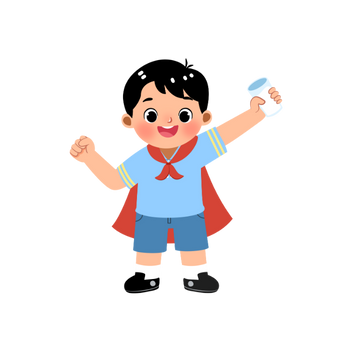Lung cancer treatment comes with many unwanted side effects that can make lung cancer even more difficult to deal with. Lung cancer treatment may vary for every patient depending the condition. But in general, your teenage child may have to go through radiation therapy, chemotherapy, and possibly surgery. These treatments can affect how your child look and feel. As parents, you should be ready to deal with the effects of treatment and let your teenager know what to expect.

Know the side effects of radiation therapy
Side effects of radiation therapy usually show up about a few weeks after treatment. But they tend to go away once the treatment is stopped. Some common side effects include:
- Tiredness and feeling run down;
- A sore throat and trouble swallowing;
- A cough;
- Hair loss;
- Chest pain;
- A temperature and shivering;
- Feeling sick;
- Sore skin in the treatment area;
- Inflammation in the treatment area.
Radiation therapy and chemotherapy are usually used in combination to treat lung cancer. This cause more risk of the unwanted side effects becoming more severe. Long term side effects of treatment are:
- Breathlessness;
- Narrowing of the food pipe (esophagus);
- Effects on the heart and spinal cord.
With side effects of radiotherapy, your child’s skin might become sensitive. Avoid things that can irritate your child’s skin, such as:
- Makeup;
- Powder;
- Cleansers;
- Moisturizers.
Lung cancer chemotherapy side effects
Chemotherapy is a common treatment for all kind of cancer because it can reach many body parts, thus prevent metastasis. However, it can bring several side effects. Here are some common side effects of chemotherapy and tips on how to cope with them:
- Hair loss. Try wearing a wig, scarf, or hat if you’re self-conscious about hair loss.
- Infection. Practice good personal hygiene, such as washing hands, and avoid public places or sick people.
- Loss of appetite, nausea, and painful mouth sores. You can try giving your child small meals and try bland, soft food that are easier to swallow.
- Eye changes. Some chemo drugs can affect the eye, such as causing blurry vision and dry eyes.
- Hearing changes. Some people can feel dizzy and lose their sense of balance after chemo treatment. Your child may hear ringing sound or cant hear high-pitched noises.
- Constipation. Drink plenty of fluids a day and eat high-fiber foods. Exercise can help with digestion as well.
- Diarrhea. Limit foods that can make your diarrhea worse. Limit dairy, greasy foods, spicy foods, and high-fiber foods. Encourage your child to drink water or any type of fluids to make up for the amount for water your child loss.
- Anemia. You can talk to your child doctor if your child has anemia to get blood transfusion or growth medications.
- Bleeding and bruising. Your child’s doctor may recommend a platelet transfusion if your child’s platelet counts is too low.
- Extreme fatigue. The best way to beat fatigue is regular exercise. Also take naps during the day and get plenty of good sleep at night.
- Nausea. This is one of the most common side effects, but anti-nausea medication is available to help keep the stomach settled.
Side effects from lung cancer surgery
The most common side effect of lung cancer surgery is pain. Depending on the type of surgery, your child may experience different amount of pain. Other side effects include breathing problem and changes in vocal chord.
There are many methods for controlling pain after surgery. You should consult with your child’ doctor before getting the surgery on how to control these side effects and how to live after surgery (such as there is any restriction or not).
If any side effect happens, contact your child’s doctor immediately. You should always record which side affects you see in your child and learn how to treat these side effects. Give your child to eat a healthful diet, incorporate exercise and resting to elevate lung cancer treatment side effects.
[embed-health-tool-bmi]



















